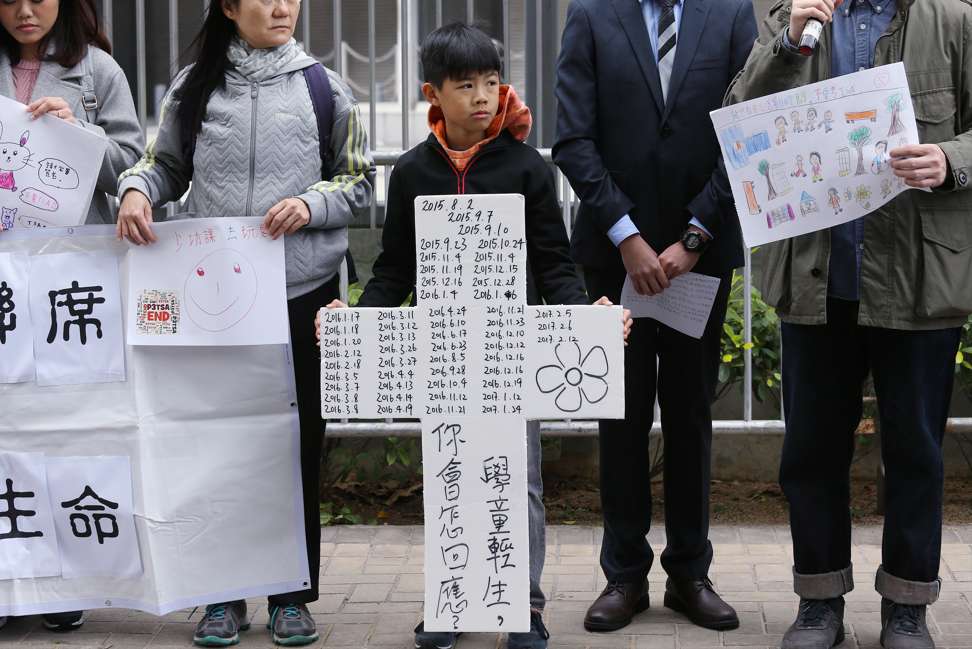It’s time to talk openly with Hong Kong’s youth about suicide and stress
Anisha Abraham says it’s vital to understand the related problems of stress and depression among Hong Kong’s young people, and how to deal with them. Equally important, our youth must be encouraged to open up about their feelings and learn to handle adversity

There has been a startling number of suicides among young people in Hong Kong in the past few weeks. The spate has helped spur discussion about stress and depression and the need for change. As a paediatrician and teen health expert, I have spent the past two weeks speaking to young people in the city’s secondary schools about stress, identifying strengths and cultivating resilience. From my discussions, it’s clear some of our students are struggling with issues and need a way forward.
While the actual suicide rate among those aged between 15 and 24 in Hong Kong has increased only slightly over the past five years, the number of teens who report being depressed is of concern. A citywide survey found that nearly half of secondary school students showed signs of depression. From our pilot study of incoming students at Chinese University, nearly a third reported having depressive symptoms in the past five years and 7 per cent had been suicidal, but very few have ever been screened or counselled for mental health concerns.
Why are kids in Hong Kong reporting high levels of depression, attempted suicide, cutting and other behaviour? Having lived in Hong Kong for years and recently moved to the Netherlands, a few key factors stand out. One is the pressure to perform well academically. When speaking to students, they uniformly agreed that academic pressure is one of the top reasons for stress. One told me that parents often set unrealistic expectations. She cited a friend whose mother would severely chastise her for any grade lower than an A. Another teen told me that he sometimes receives text messages from friends who are thinking about hurting themselves because of the pressure to fit in and to do well.
A second factor is the lack of downtime. Students are often required to go from one tutorial or activity to another, with a rare break for relaxation.
A third issue is the difficulty for young people to openly communicate their feelings of worthlessness and frustration to others, and the stigma that exists about having an issue and receiving counselling. One student disclosed she had been cutting herself for a year, but was afraid to tell her parents.
Another factor is the significant use of social media and the internet. Quite a few of the students I spoke to knew someone who was often on social media or video game sites. The heavy use of “screen time” may lead to disengagement from regular interactions and contribute to feelings of poor self-worth and addiction.
Yet another concern is that we’re not adequately preparing young people to face failure or rejection and to be resilient. I’ve seen students fall apart once they joined university or started a job because they didn’t know how to handle having poor grades, conflict or face other challenges.
How can we prepare kids to handle problems, communicate, turn off the screen, be less stressed and relax? After moving to the Netherlands from Hong Kong, I was surprised to learn very few Dutch children receive tutorials after school. In fact, most Dutch kids ride a bike or play sports after school. What’s more, local schools have a half-day in the middle of the week and open one hour late on Fridays. Dutch parents are extremely candid about discussing issues with kids (such as depression, sex and drugs) and give them a much higher level of autonomy at younger ages. This may all explain in part why Dutch kids are often cited as the happiest children in the world.
Most of the students in Hong Kong whom I spoke to told me that they had experienced stress. Quite a few said they were regularly stressed. Studies have shown that chronic stress during childhood can have lifelong negative effects on the developing brain. Kids need to be given tools to handle depression and stress at early ages. They should know that constantly feeling sad and stressed is not normal and be encouraged to exercise, practise yoga and mindfulness, get adequate sleep, turn off the screen, and so on. Also, they should be encouraged to have open discussions about their feelings.
Watch: Minister, why is it so stressful?
More focus should be given on asking young people about self-worth, suicide, and depression on routine exams, as well as providing confidential counselling services in school settings. In my experience, asking young people if they are suicidal does not increase the likelihood of them becoming so, but provides an opportunity for them to discuss why they are contemplating it in the first place. Young people should also be encouraged to cultivate a healthy self-esteem.
In my experience, asking young people if they are suicidal does not increase the likelihood of them becoming so
Students told me they are concerned about their peers being depressed, but are unsure of what to do. Teens should be educated to get adults and professionals involved if they notice warning signs of depression among their friends.
Finally, resilience is the ability to get up and move on after a setback. By allowing kids to fail and problem-solve at young ages, they learn how to handle life’s curveballs before they lose their safety net. We need to convey to youth that it’s how we handle adversity that helps defines us and predicts success, not having the top grades.
I applaud the recent efforts of schools, organisations and the government to increase awareness and help alleviate youth stress and depression. This is so crucial. We need to do more.
Anisha Abraham is an adjunct associate professor at the Jockey Club School of Public Health and Primary Care, Chinese University of Hong Kong, and visiting associate professor in the Department of Paediatrics at the University of Amsterdam, Netherlands
